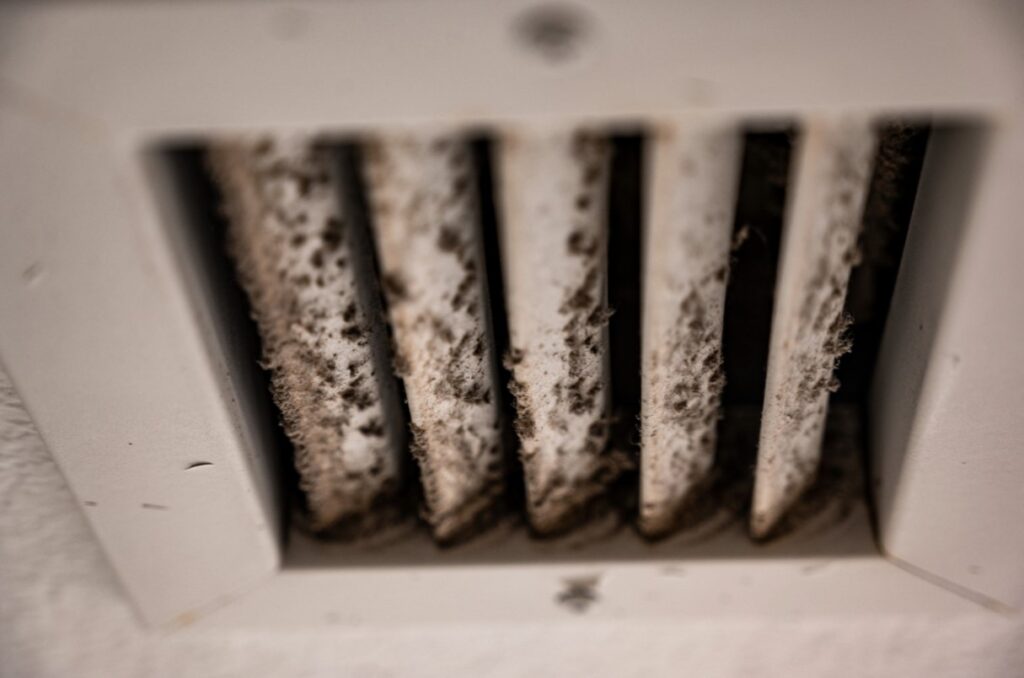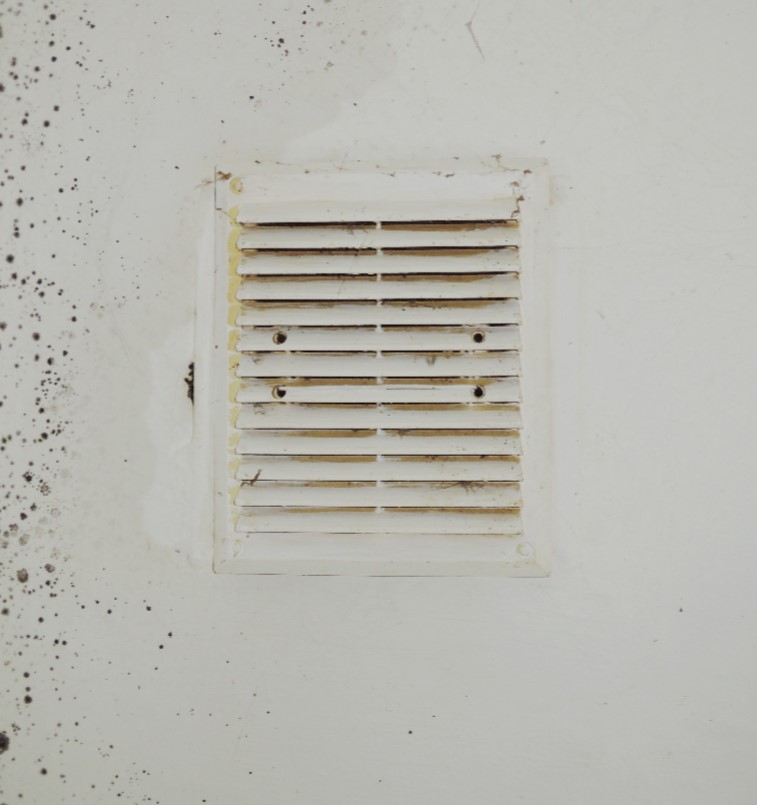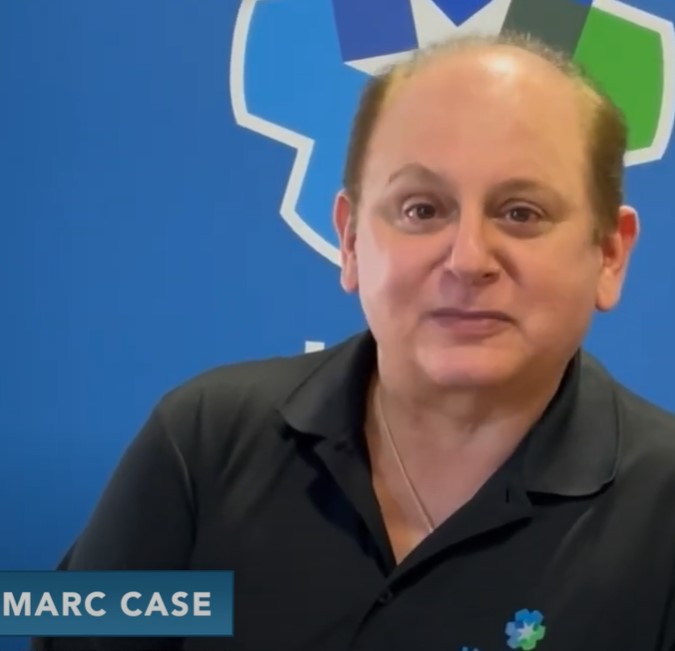
When we think about the quality of our indoor air in Monmouth and Ocean County, New Jersey, we rarely consider the potential hazards lurking within our air ducts—namely, mold in air vents.
Mold is a common yet potentially dangerous fungi that can thrive in damp, dark spaces like your HVAC system. Among the various types of mold, black mold is particularly important to be aware of. This type of mold growth can reach alarming levels, turning your air ducts into a breeding ground for these harmful spores.
The process of mold exposure is subtle but harmful. Each time your HVAC system kicks on, mold spores, nurtured by the warm, moist environment of your air ducts, can be dispersed throughout your NJ home. The health risks associated with this are severe in some cases, particularly when dealing with toxic mold.
Replacing air filters regularly and scheduling regular air duct cleaning services can help in controlling the spread of mold, but once mold establishes itself, professional intervention is often necessary.
Why should you be concerned about Mold?
Mold is a type of fungi that exists throughout the environment. It plays a vital role in nature by breaking down dead organic matter. However, when mold infiltrates our homes and grows in areas like our air conditioning systems, it can become a significant health hazard.
Mold consists of tiny spores that float in the air. When these spores land on damp surfaces, they begin to grow. These microscopic organisms thrive in moist, warm conditions, which is why areas such as drip pans in your air conditioner unit can become a breeding ground for them. The presence of black dust around air vents often indicates mold growth.
Types of Molds Commonly Found in Homes
There are several types of molds that can be found in homes. These include:
- Aspergillus: This mold species thrives in warm, extremely damp environments and can cause respiratory issues.
- Penicillium: This mold is often found on materials that have been damaged by water and can lead to allergy symptoms.
- Stachybotrys Chartarum (Black Mold): This highly toxic mold produces mycotoxins, which can lead to health problems.
Air conditioning systems can circulate these molds throughout your home, potentially leading to various health issues, including allergy symptoms like sneezing, coughing, and skin irritation.
If you notice signs of these molds or suspect any other types of mold growing in your Monmouth and Ocean County, NJ home, it’s crucial to address the issue as soon as possible. Ignoring mold problems can lead to worsening health conditions among occupants.
To effectively combat mold growth, professional mold remediation services are often necessary. MasterTech Environmental Jersey Shore specializes in mold remediation, water and biohazard cleanup, ensuring your home or business stays mold-free. We understand the sensitive nature of these issues and approach them with effective methods and professional products to clean up and make sure your home is safe for you and your family.
Why Mold Grows in Air Conditioning Vents
Mold growth in air conditioning vents can stem from various factors. One primary cause is the accumulation of moisture within the HVAC system. This moisture can originate from condensation due to temperature differentials, leaks, or even improper drainage. Combined with dust and dirt that settle within the vents, these conditions create an ideal environment for mold to flourish. Lack of proper ventilation, warm temperatures, and organic matter present in the ducts further contribute to mold growth.
Our home is our sanctuary, a place where we should feel safe and comfortable. However, sometimes it can harbor unseen threats, one of which is mold growth in air vents. Understanding the causes and how mold spreads in these areas is crucial to maintaining a healthy living environment.
Conditions That Promote Mold Growth in Air Vents
There are several conditions that can promote mold growth in your air vents. Here are some of the main factors:
Moisture:
Mold thrives in damp environments. If there’s excess humidity in your home, or if your air conditioning system isn’t properly draining, it can create the perfect breeding ground for mold.
Dust and Dirt:
Air vents can collect dust and dirt over time. These particles can provide the necessary nutrients for mold to grow.
Lack of Ventilation:
Poorly ventilated spaces can trap moisture and warm air, creating ideal conditions for mold growth.
Temperature:
Mold prefers warm conditions. If your air vents are located in a warm part of your home, they may be more susceptible to mold growth.
How Mold Spreads in Air Vents
Once mold has established itself in your air vents, it can quickly spread throughout your home. This is because the air conditioning system circulates air throughout your house, carrying mold spores from the infested vents to other areas of the home.
When the air conditioning system is turned on, the mold spores in the air vents become airborne. These spores can then land on various surfaces in your home, including furniture, carpets, and even your clothes. If these areas are also warm and moist, the spores can start to grow, leading to more widespread mold problems.
It’s important to note that according to the US Environmental Protection Agency, “if you have insulated air ducts and the insulation gets wet or moldy it cannot be effectively cleaned and should be removed and replaced. If the conditions causing the mold growth in the first place are not corrected, mold growth will recur.”
The Dangers of Mold in Air Vents
Mold growth in HVAC systems poses potential health risks and structural concerns. Beyond affecting indoor air quality, mold in air vents can release spores into the air, leading to respiratory problems, allergic reactions, and aggravated asthma symptoms for susceptible individuals. Moreover, prolonged exposure to certain molds, like the Stachybotrys Chartarum (Black Mold), can lead to severe health issues, making prompt remediation crucial.
Health Risks Associated with Mold Exposure
Exposure to mold can pose a variety of health risks, particularly for individuals with pre-existing health conditions or those who are susceptible to respiratory issues. Understanding these risks can help you take measures to protect your health and that of your loved ones.

Mold reproduces through tiny spores that float in the air. When these spores are inhaled, they can cause a variety of health problems. The severity of these problems often depends on the individual’s sensitivity to mold, the type of mold present, and the extent of exposure.
For some people, mold can be a mere irritant, causing minor symptoms like a stuffy nose or coughing. For others, particularly those with allergies or asthma, mold exposure can lead to more serious health problems.
Specific Illnesses and Symptoms Caused by Mold Exposure
Mold exposure can cause a range of symptoms and illnesses, including:
- Allergic reactions: These are the most common health problems associated with mold exposure. Symptoms can include sneezing, runny or blocked nose, red eyes, and skin rash. People with mold allergies may have more severe reactions, including shortness of breath.
- Asthma attacks: For people with asthma, inhaling mold spores can trigger an asthma attack.
- Infections: Certain types of molds can cause infections, particularly in people with weakened immune systems. These infections can affect the skin, lungs, and other parts of the body.
- Hypersensitivity pneumonitis: This is a rare condition that can occur when exposure to mold leads to lung inflammation.
- Mycotoxicosis: Some molds produce toxins known as mycotoxins. Ingesting or inhaling these toxins can lead to a condition called mycotoxicosis, which can cause symptoms ranging from short-term irritation to long-term damage to the lungs and central nervous system.
Symptoms of Mold in HVAC Vents
Identifying mold in air vents can be challenging, but certain signs indicate its presence. Musty odors emanating from the vents, visible mold growth or discoloration around the vent openings, frequent allergic reactions or unexplained respiratory issues among occupants, or increased humidity levels within the home can all point towards mold infestation in HVAC systems.
MasterTech Environmental Jersey Shore provides 24 hour mold testing that will provide precise information regarding the type of mold you are dealing with in your home, and if the substance you find is actually mold at all. The EPA says “You should be aware that although a substance may look like mold, a positive determination of whether it is mold or not can be made only by an expert and may require laboratory analysis for final confirmation.”

Mold Growth In Air Vents
Mold growth in our homes, specifically in air vents, is not just a structural concern but a major health issue. Conditions such as moisture, dust, lack of ventilation, and warm temperatures can create an ideal environment for various types of mold to flourish, leading to potential health risks such as allergies, asthma attacks, and even serious infections.
Therefore, it is critically important to have a mold inspection and to regularly maintain your air conditioning systems. In the event of mold detection, professional remediation should be sought immediately to safeguard the health of the dwelling’s occupants and to ensure the longevity of your home.
What to Do if You Have Mold in Air Vents
If you suspect mold growth in your HVAC system, immediate action is essential. Contact MasterTech Environmental Jersey Shore for comprehensive mold inspection, available 24-hour mold testing, and professional mold removal services. Our certified experts conduct thorough inspections, using advanced tools to locate and assess mold growth within your air conditioning vents. Following precise testing, we provide rapid and accurate results, enabling prompt remediation planning.
Our mold removal services are designed to eliminate mold colonies, ensuring a clean and safe HVAC system. We use industry-leading techniques to eradicate mold while preventing cross-contamination, safeguarding your indoor air quality. Don’t compromise your health or indoor environment—trust MasterTech Environmental Jersey Shore for reliable solutions to address mold in your HVAC system promptly and effectively.

